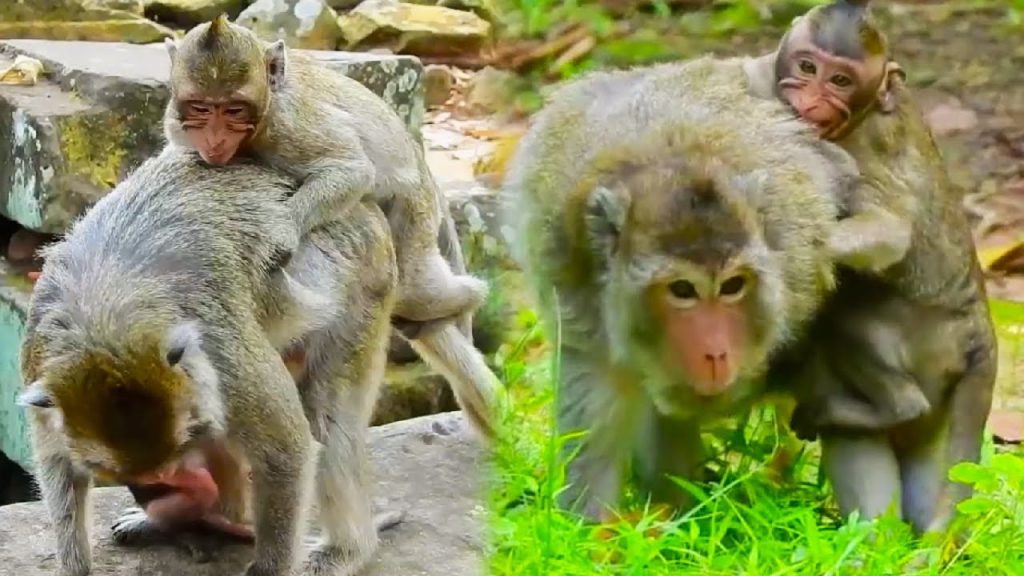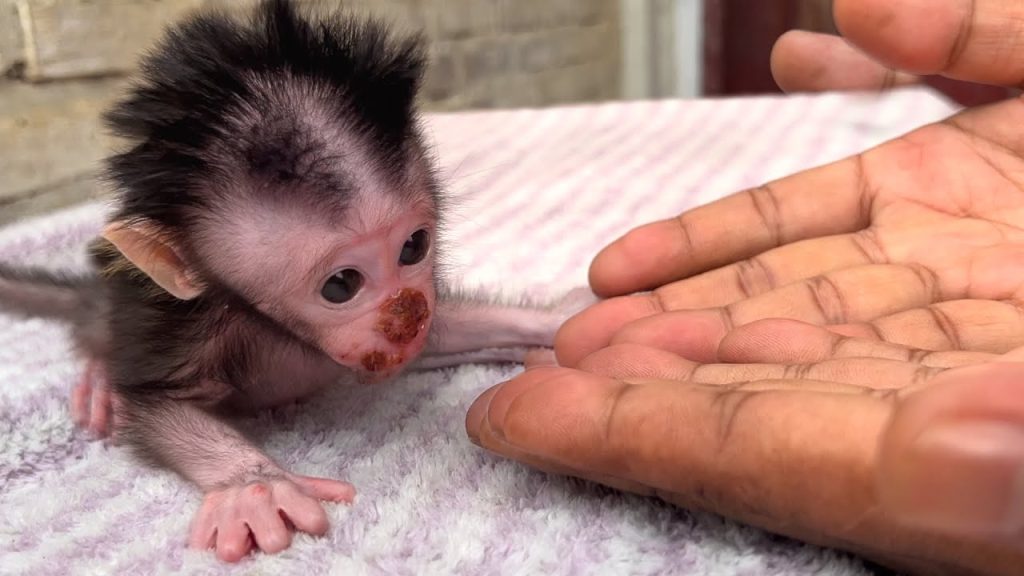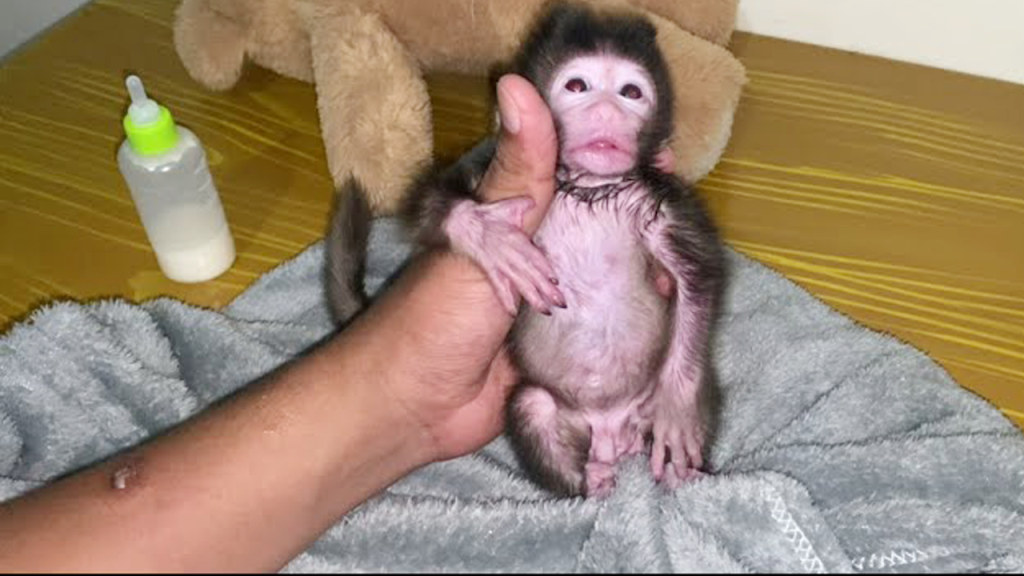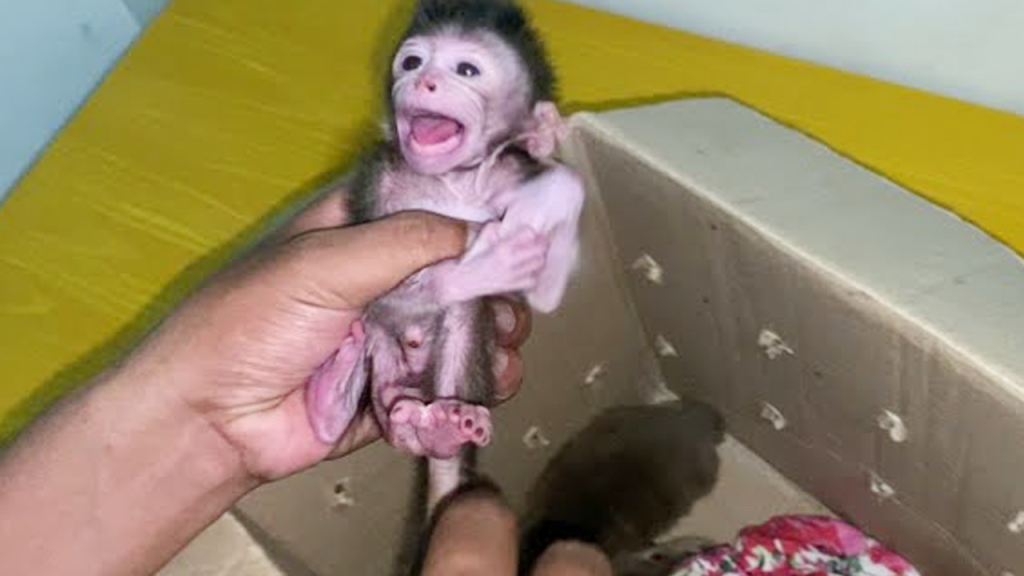
In the world of monkeys, childhood does not last forever. As little ones grow bigger, they are expected to find independence, forage for food, and climb with confidence. Yet sometimes, even as bodies grow tall and strong, hearts remain attached to the comfort of a mother’s embrace. For one young monkey, bigger than most of his playmates, the desire to still be cradled in his mother’s arms brought both laughter and lessons to the troop.
The young monkey was no longer tiny. His legs were sturdy, his hands strong, and his teeth sharp enough to chew fruits on his own. Still, whenever he felt tired, hungry, or simply wanted attention, he clung to his mother as if he were a newborn. He wrapped his long arms around her neck, pressed his head into her chest, and demanded to be carried. To the rest of the troop, the sight was amusing—a big baby insisting he was still small.
But to his mother, patience had its limits. Carrying a heavy child while foraging was no easy task. The troop was always on the move, and survival required strength, not endless cuddling. She loved her son deeply, but she knew it was time to teach him the discipline of independence.
When he reached for her to be lifted, she shook her body gently, dislodging his grip. He cried out in protest, his voice loud and pitiful, echoing through the trees. Other juveniles watched curiously, some giggling as they munched on fruit, amused at his stubbornness. But his mother stayed firm. She pushed him down and groomed him only briefly before turning away, signaling that she would not carry him anymore.
The young monkey did not give up easily. He scrambled after her, tugging at her tail, his cries growing louder and more dramatic. He rolled on the ground as if the world had wronged him, hoping his theatrics might soften her resolve. Yet his mother remained calm, neither angry nor indulgent. She simply ignored his pleas and continued searching for food, setting the example of what survival required.
Finally, when his tantrum yielded no result, the young monkey sulked beneath a tree. His cries turned into sniffles, his shoulders hunched in defeat. But hunger soon forced him to act. Watching the others, he tentatively picked a fruit from the ground. Clumsily, he bit into it, chewing on his own. It wasn’t the same comfort as his mother’s arms, but it filled his belly—and with it came the realization that he could manage without being carried.
By evening, he returned to his mother, quieter now. She groomed him gently, allowing him to feel her love, but she did not lift him. Instead, she sat proudly beside him, her firm lesson having taken root.
For the big baby, the discipline felt harsh at first, but it was also wrapped in love. His mother’s refusal was not rejection—it was guidance. Through her firmness, he learned that while her embrace was always there, he was strong enough to stand on his own.


